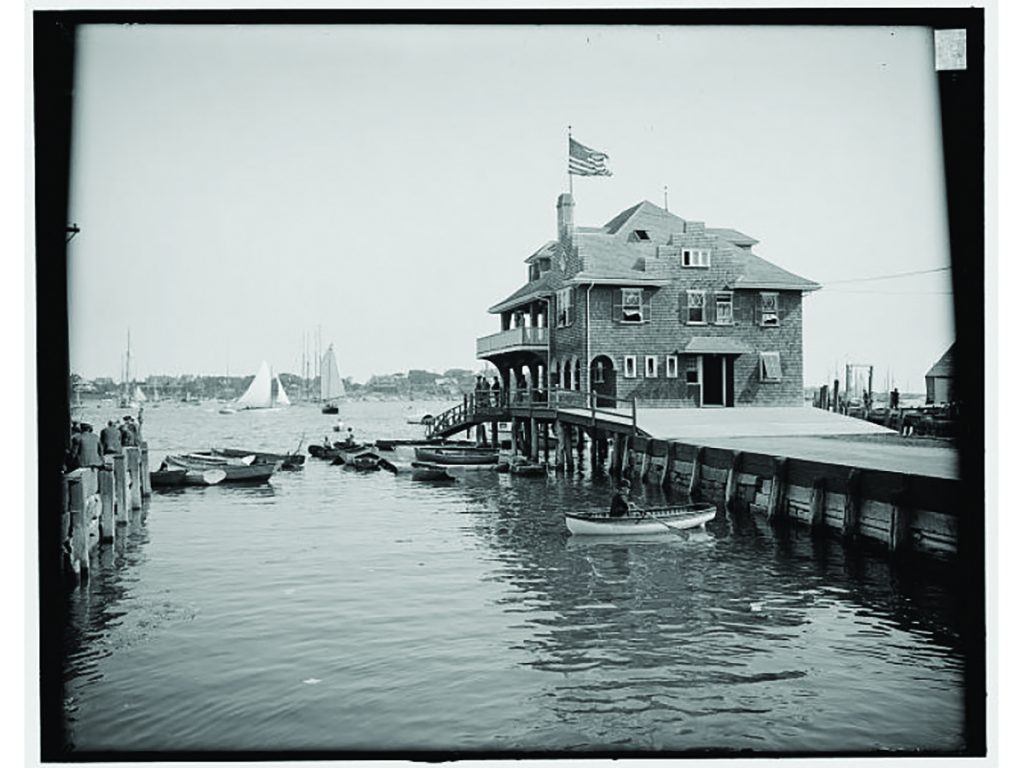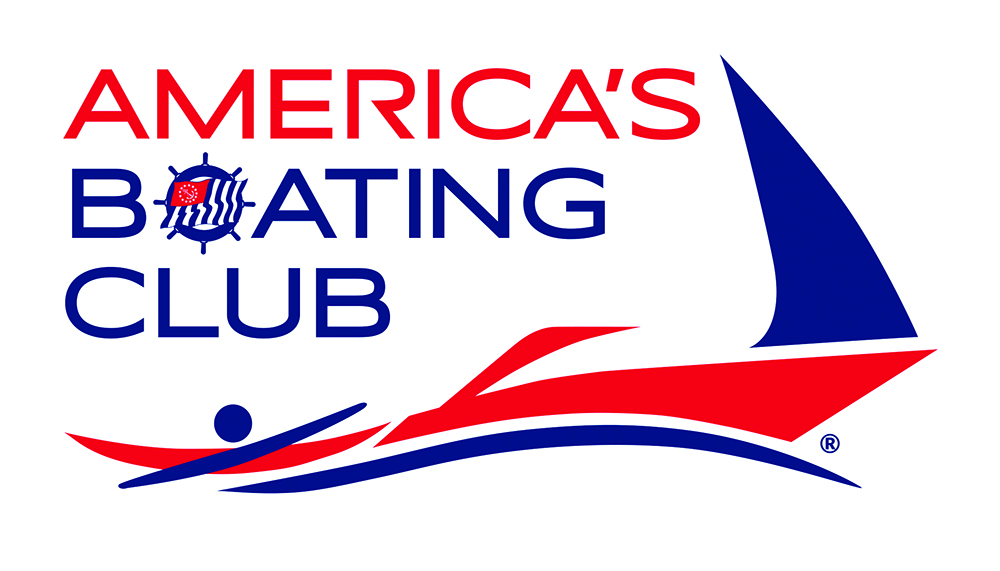By Susan Ryan and Donald Peterson
The United States Power Squadron (USPS) was founded in 1914 by Rear Commodore John Upton of the Boston Yacht Club, author Charles F. Chapman and others to formalize the education and training of civilian boaters, and it grew into the nation’s foremost recreational boating organization.

Boston Yacht Club in Marblehead, MA is the birthplace of the U. S. Power Squadron.
How they chose the name is an interesting tale going back to 1912 when Upton organized a select group of “gasoliners” as the first power-driven sail boaters were called, into “The Power Squadron.” Though known as “stink boats” by sailing members, their owners and operators were held in great esteem for their knowledge of seamanship and navigation.
There was a need for maritime education, as the laws governing navigation applied only to steam vessels and were enforced by a board of steamboat inspectors who sought to apply them to the small internal-combustion yachts. An event in 1912, when twenty Power Squadron vessels were invited to join forty windjammers on the annual Boston YC cruise to Portland, ME, demonstrated how powerboats would benefit recreational boating.
The powerboats cruised in squadron formation with an elaborate system of maneuvers executed by means of flag signals. During the cruise, a screeching nor’wester blew up. Many of the sailing yachts were dismasted or otherwise disabled. The power yachts under Upton’s command went to their rescue, towing disabled craft to port. To quote the September 1912 issue of Motor Boating Magazine, “The fellows of the Power Squadron provided meritorious service and emerged from the ordeal crowned with glory.”
Within three years of their founding, USPS had 477 members in twenty squadrons. When the United States declared war on Germany, Assistant Secretary of the Navy Franklin Delano Roosevelt accepted Upton’s offer to train men for coastal defense.
Before the late 1950s and ‘60s, the Power Squadrons were thought to be an organization for the yachting class where chart reading, course plotting and offshore navigation skills were required for serious boaters. In the mid 1960s, the reliability and horsepower of outboard engines greatly improved and fiberglass began to dominate the recreational boating industry. New boaters were eager to learn those skills, and membership increased dramatically. We are one of the few organizations still teaching celestial navigation, and with the advent of electronic navigation we’ve upgraded our course materials. And as we now share the water with jet skis, kayaks, paddleboards, wakeboards, sailboards, and towed inflatables, we want to include them in the organization to create a dialogue on how we can share the space safely.
For many reasons, USPS membership is in decline and we’ve revised our strategy to continue fulfilling the mission of teaching and practicing safe boating. Does our name still fit what we do? Power? Squadron? We think not, but ‘America’s Boating Club’ sounds right. Yes, we still produce the best boating classes, but we also have terrific parties and speaker events and are very involved with scholarships and volunteering in various organizations.
‘Club’ denotes well the kind of camaraderie we embody. The logo represents a kayaker merging into a powerboat merging into a sailboat. We encompass all types of watercraft. Our tagline confirms that we are boaters, offering much for boaters.

The America’s Boating Club logo depicts a kayaker merging into a powerboat merging into a sailboat.
Our official name is still The United States Power Squadrons® but this new logo is the primary public identification. We’re retaining the parts of our heritage that make up our DNA (ensign, burgees, ship’s wheel) while updating our image. Most squadrons have embraced it, though it’s not obligatory. One local commander says, “As a traditionalist, I’m slow to throw out a winning formula that has served us for over 100 years in good times and hard times.”
That’s fine; his squadron is thriving and sees no need to change. Another commander is embracing “a welcome change to re-energize the organization and expand and modernize our education programs to reach more boaters so we can better fulfill our mission to teach safe boating to generations of new boaters.” To learn more, email SusanRyanCT@gmail.com. ■
Susan Ryan is a Past District Commander of America’s Boating Club of Greenwich in Greenwich, CT. Donald Peterson currently serves as Commander of America’s Boating Club of Fairfield in Fairfield, CT.
